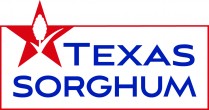Sugarcane Aphid Population Smaller Than Expected – As farmers throughout the Rio Grande Valley braced themselves for another battle with the sugar cane aphid this year, populations seem to be smaller than last year. Researches believe steady rains and other factors this year may have stopped the insect from invading the sorghum crop. Last May, researchers warned that sorghum growers who failed to spray their fields faced crop losses of 50 to 80 percent after the insect’s population erupted across the region. Exploding growth led the aphid to infest the Valley’s sorghum fields in about two weeks, first attacking the plant’s leaves before beginning to move to its head, which farmers harvest for its grain. “We have an enigma as to what’s happening,” said Raul Villanueva, an entomologist at Texas A&M AgriLife Extension Service in Weslaco. “We were predicting them to be very abundant this year.” Villanueva recommended growers continue to check their fields for the pest. Last year, he said, the aphid reached peak populations in late June, mid-August and late September. “That’s our concern,” Villanueva said. “They need to continue checking their fields. This population can increase tremendously in two weeks.”
Unexpected Year Continues to Pose Problems for Producers – There is no doubt 2015 has been unlike anything producers across the state of Texas were prepared for. With the much-needed moisture making it impossible to get into some fields and planting date insurance deadlines looming for cotton, some producers are wondering what to do if they can’t get planted in time. They must also consider the cotton herbicides they have already applied to fields and restrictions that apply for other crops. According to Southwest Farm Press, Jourdan Bell, assistant professor and agronomist, Texas A&M AgriLife Research & Extension Center-Amarillo, noted in a recent email that farmers do have options. “The inability to plant cotton, coupled with cotton herbicides on the ground is a big concern,” she says. Bell recommends a link to a publication by Calvin Trostle, Extension agronomist at Lubbock, that addresses crop restrictions for herbicides applied for cotton. Treflan is bound very tightly in the soil, farmers can plant below the herbicide, and it is important to remember planting depth will vary, depending on how deep the herbicide was incorporated. Recent rains will not wash away the herbicide to alleviate the problem. It is best to plant under ideal conditions with soil temperatures at 65 degrees Fahrenheit for 10 days to ensure vigorous early growth.
KIND Bars Now Include Sorghum – The KIND brand has added two new Healthy Grains bars, popped salted caramel and popped dark chocolate with sea salt, that include sorghum as one of their six super grains in their whole grain ingredient blend. The Healthy Grains bars are promoted as gluten free and non-GMO. Popped Salted Caramel KIND Healthy Grains bars each have 20 grams of whole grains and are baked with caramel chunks and sea salt, while the Popped Dark Chocolate with Sea Salt KIND Healthy Grains bars each have 19 grams of whole grains and are baked with dark chocolate chunks and sea salt. KIND bars can be found at multiple locations such as GNC, Target and Vitamin Shoppe just to name a few, or on a variety of websites online. To order directly from the Kind website, visit www.kindsnacks.com.
Export Sorghum – Next week an exclusive three-day sorghum event hosted by the Sorghum Checkoff and Texas Sorghum Producers will take place in Houston, Texas. The event focuses on selling sorghum by building trade relationships between international sorghum buyers and U.S. exporters and by educating buyers on all that sorghum has to offer in hopes that they will continue to buy sorghum or begin to buy sorghum in the future. Approximately 25 international attendees from China, Mexico and Japan will be in attendance to hear up-to-date sorghum information that include presentations on markets, nutritional data, and upcoming sorghum research just to name a few. Prior to and after the event, the international teams will tour parts of Texas and Kansas making stops at elevators, sorghum fields and a port to learn more about U.S. sorghum.
Don’t forget to check-out our new online calendar at www.texasgsa.com/events! For calendar sponsorship opportunities, contact katelyn@texassorghum.org.










